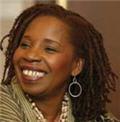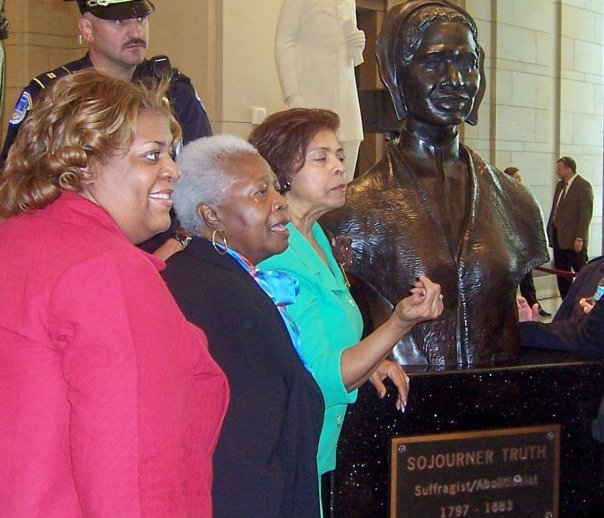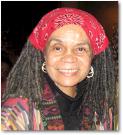-
I’m struggling with the essence, the energy of my great grandmother in my DNA that says you don’t need nothing but a strong connection to you and your creator. You know, she says, ‘He’ll tell you what to do and how to do it.’ She says, ‘You keep doing the same thing, sometimes in a different way, and that’s why you keep getting the same results.’ She says that we have a genetic and a cellular memory that comes forth, and that memory that is really etched inside of us is one of running, hiding and waiting. We’ve been running from stuff for so long. Then we hide so that we won’t be found out hoping to be found, and then we wait to be invited in. And she says it’s time for us to stop running, first of all, from responsibility. . . .Nobody in the White House, green house, po’ house, left house brought you on this planet. You are here by divine design. What is your connection to that? What is your connection to that?
After deafening cheers from the audience and panelists, Vanzant told black folks that trust was their second area of responsibility and that grandma said black folks show a lack of trust by what they say and do. Ultimately, they turn to the government, instead of themselves, to get what they want. “I don’t need George Bush to tell me who I am and who I’m not,” Vanzant said. “I don’t need that. What I gotta do is go within myself.” And, as she has said throughout sharing this spiritual moment, going within herself means tapping into ancestral spirits to help her and others recognize “their divinity, their power, but also recognizing the things they do to sabotage themselves. . . .So, yes, me and grandma are having a moment. And it’s all good.”
Maybe you thought like me at first. Beyond the ethereal talk, I thought that Vanzant may have just been referring to the values her grandmother instilled in her but was just using present tense to describe how her grandmother would talk to Vanzant when she was alive. But then Vanzant closed her remarks with this: “So let us as individuals, as we address each and every one of these issues, please let us not forget that grandma will speak to you, and not only will she speak to you, but she knows that they owe you her salary, and she’ll tell you how to get it.” I love my grandmothers, and they were wonderful women. I remember their wisdom and use it. But I remember what they told me and don’t seek to find out what they can yet tell me. This is divination. This is witchcraft. This is worshipping the dead. This is not the way to honor the ancestors, if you’re a bible-believing Christian.
“When men tell you to consult mediums and spiritists, who whisper and mutter, should not a people inquire of their God? Why consult the dead on behalf of the living?” (Isaiah 8:19, NIV). Isaiah asks us two good questions that we need to ponder. If we do indeed believe in “giving honor to God who is the head of my life,” then we should make that statement true, and seek him. And if we must talk to an ancestor, let it be someone alive who God has told us to seek. Grandma may have had some good ideas, but only the one who was and is and is to come, Jesus the Christ, has the best ideas, and we must seek him for our strength.
Copyright 2009 by Rhonda J. Smith



